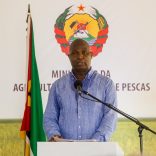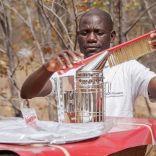Revenues from Mozambique's tobacco exports fell by half year-on-year in Q1
AECF, AGRA & stakeholders meet over innovation, sustainable development in Mozambique

Agra (File photo)
Social development stakeholders will meet today (Tuesday) in Maputo to discuss funding and other mechanisms to leverage low-income families in rural areas.
Led by the Africa Enterprise Challenge Fund (AECF), a continental body supporting rural economic growth initiatives, the event, which is organized in partnership with the African Alliance for the Green Revolution (AGRA), will also address the main barriers to small businesses and organizations that want to move towards sustainable transformation.
Speaking to the media on Saturday, AECF program manager Boleslaw Stawicki said that the symposium would yield good results given the presence of key players, some of whom are working on the ground.
The AECF focuses on organizations that seek to bring sustainable economic and development solutions to the vulnerable in rural areas.

Boleslaw Stawicki said that grassroots government figures such as provincial governors and other leaders overseeing various initiatives, were invited to what is what is intended to be an inclusive symposium.
Under the motto “Investments in innovative companies that contribute to sustainable and socioeconomic transformation in Mozambique”, the meeting will review activities financed by the entity, which has been operating in Mozambique since 2011.
Working in partnership with the African Alliance for the Green Revolution, the AECF is one of the largest rural development funders in Africa and has disbursed more than US$250 million in sustainable transformation initiatives that contribute to the economy of thousands of low income families.

“We will have opportunities to interact and see what funding barriers there are and how to correct them, because we have to create the conditions for the poor in rural areas,” the source explained.

The organization’s sphere of action is agriculture and agribusiness, renewable energies and adaptations to combat climate change.
The AECF provides catalytic funding in the form of refundable and non-reimbursable grants to companies which would otherwise not have access to funding. It has been supported by the governments of Australia, Canada, Denmark, the Netherlands, Sweden and the UK and international financial institutions such as IFAD and the Consultative Group to Assist the Poorest.












Leave a Reply
Be the First to Comment!
You must be logged in to post a comment.
You must be logged in to post a comment.